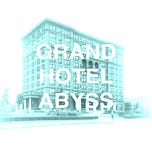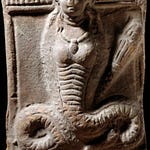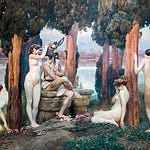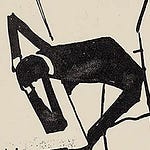Welcome back to The Invisible College, my series of literature courses for paid subscribers. The 2024 syllabus can be found here. This episode, free in its entirety, concerns the poetry of Robert Frost. I discuss the paradox of Frost’s career as an immensely popular poet whose poetry is also puzzling, difficult, and dark beneath its surface, an oxymoronic populist modernism. Via a selection of some of Frost’s most famous poems—lyric, narrative, and dramatic—I consider the many poetic personalities of Frost: popular, epigrammatic, romantic, realist, modernist, and political. I judge him an inheritor and critic of Romanticism, and a wry, chastened anti-gnostic. I make some timely remarks about his political evolution from “Grover Cleveland Democrat” to critic of what he saw as his party’s turn away from populism to overweening bureaucracy and administration in the New Deal. Finally, I explain and even defend his conviction that good poetry (or good literature in general) combines sound and sense, structure and feeling, as this episode’s titular “momentary stay1 against confusion.” Please like, share, comment, and enjoy!—and please offer a paid subscription so you don’t miss the rest of the American literature sequence, including forthcoming episodes on Ernest Hemingway, F. Scott Fitzgerald, Ezra Pound, Wallace Stevens, and William Faulkner, not to mention the archive of episodes on modern British literature from Blake to Beckett and our previous sequences on the works of Joyce, including Ulysses, and on George Eliot’s Middlemarch. The slideshow corresponding to the lecture can be downloaded here:
I was imprecise in the episode in explaining what Frost meant by “stay,” because I’m always weak on maritime vocabulary. It’s a metaphor derived from the term’s nautical definition: a rope or rod that supports a ship’s mast. Thus the poem momentarily upholds the reader’s confused consciousness.














Share this post